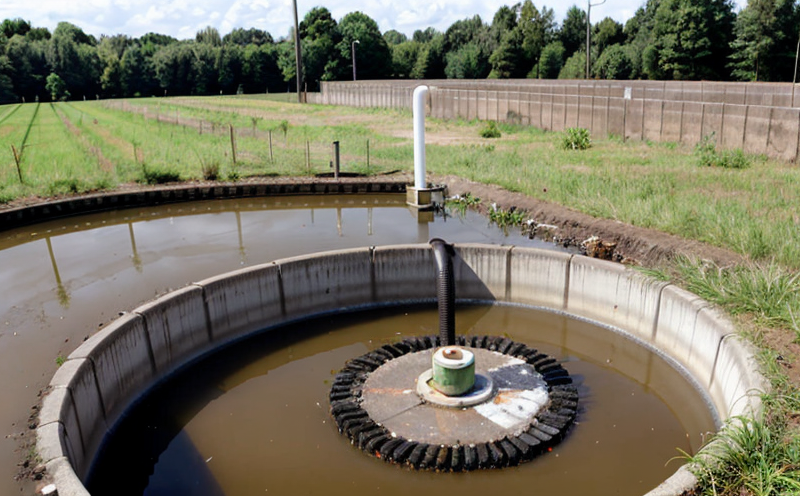ASTM D5907 Total Organic Carbon Testing
The ASTM D5907 method is a standardized procedure used to determine total organic carbon (TOC) in water and wastewater samples. This test is crucial for understanding the presence of organic compounds in these samples, which can have significant implications for environmental protection and public health.
Water quality is a critical issue globally, with concerns over contamination from industrial processes, agricultural runoff, and urban pollution. Wastewater treatment facilities play a vital role in mitigating this problem by removing harmful substances before the treated water is released back into the environment. The ASTM D5907 method provides reliable data on TOC levels, which helps in assessing the efficiency of these treatment processes.
The test involves oxidizing organic compounds to carbon dioxide and measuring the resulting carbon content. This measurement can provide insights into the overall quality of water, including its purity and suitability for various applications such as drinking water or industrial use. The TOC level is measured in milligrams per liter (mg/L), which allows for easy comparison between different samples.
The ASTM D5907 method uses either a combustion or wet oxidation technique to oxidize the organic compounds present in the sample. In the combustion technique, the sample is heated with oxygen at high temperatures, resulting in the conversion of all organic matter into carbon dioxide and water. The wet oxidation process involves using a chemical reagent (such as potassium permanganate) to oxidize the organic matter before measuring the TOC.
The precision and accuracy of ASTM D5907 are ensured through rigorous calibration procedures and adherence to international standards such as ISO 14638. This standardization guarantees that results from different laboratories are comparable, which is essential for regulatory compliance and quality assurance.
ASTM D5907 is particularly useful in monitoring the effectiveness of wastewater treatment processes. By measuring TOC levels before and after treatment, facilities can assess how well they are removing organic matter. This information is crucial for optimizing treatment protocols to achieve better water quality outcomes.
The method also finds applications in environmental research, where it helps identify sources of pollution in rivers and lakes. Scientists use TOC measurements to trace the origins of contaminants and evaluate the impact of various pollutants on aquatic ecosystems.
Benefits
The ASTM D5907 method offers several key benefits that are particularly valuable for quality managers, compliance officers, R&D engineers, and procurement professionals:
- Compliance Assurance: Ensures adherence to environmental regulations by providing accurate TOC measurements.
- Risk Management: Identifies potential risks associated with high levels of organic compounds in water and wastewater samples.
- Data Integrity: Provides reliable data for decision-making processes related to water quality management.
- Efficiency Improvement: Helps in optimizing treatment processes by providing insights into the effectiveness of current protocols.
Industry Applications
| Application Area | Description |
|---|---|
| Water and Wastewater Treatment Facilities | ASTM D5907 is used to monitor the effectiveness of treatment processes by measuring TOC levels before and after treatment. |
| Environmental Research | Scientists use this method to identify sources of pollution in water bodies and evaluate the impact of various pollutants on ecosystems. |
| Pharmaceutical Industries | Ensures that production processes do not introduce excessive organic compounds into wastewater streams, maintaining compliance with environmental standards. |
| Manufacturing Plants | Maintains water quality in industrial processes by ensuring that treated water meets strict TOC limits required for various manufacturing steps. |
Eurolab Advantages
Eurolab offers a comprehensive suite of services to support your compliance and quality assurance needs. Here are the advantages of choosing Eurolab for ASTM D5907 Total Organic Carbon Testing:
- Experienced Professionals: Our team comprises highly skilled professionals with extensive experience in water and wastewater analysis.
- State-of-the-Art Facilities: Equipped with advanced instrumentation to ensure precise and accurate measurements.
- Compliance Expertise: Stay ahead of regulatory changes by leveraging our deep understanding of current standards and best practices.
- Fast Turnaround Times: Expedite your testing process without compromising on quality or accuracy.





